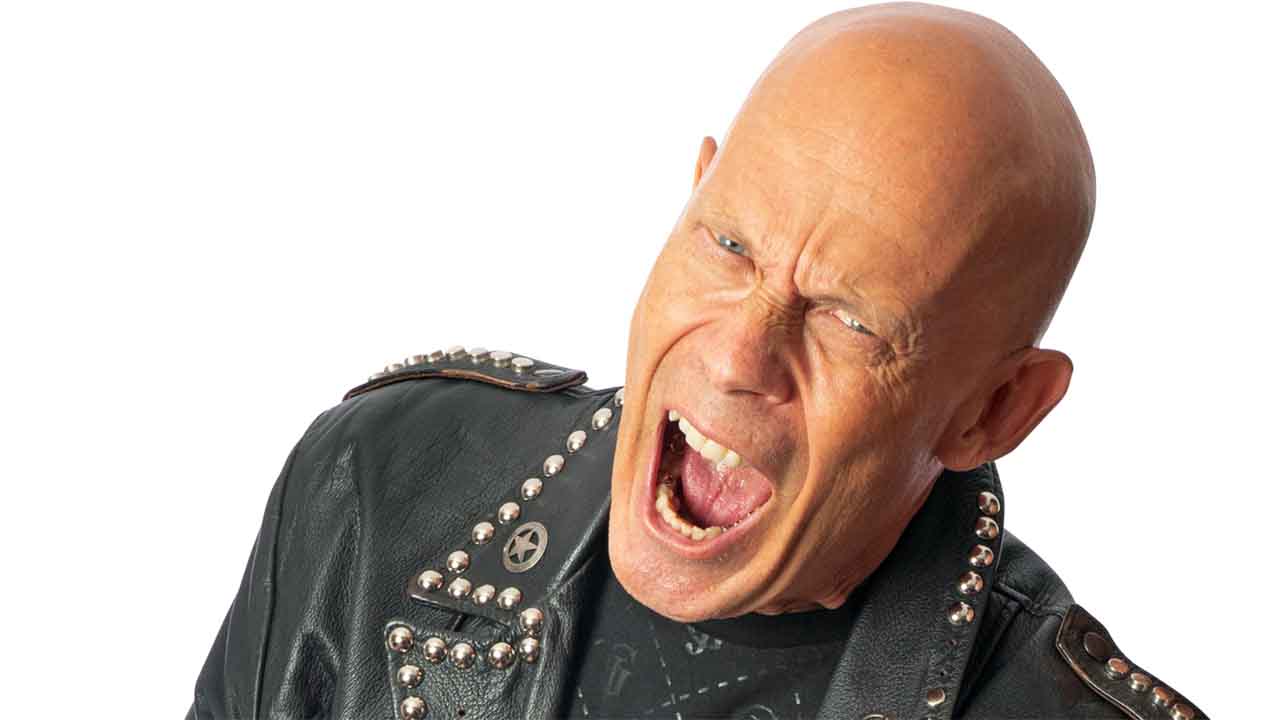Accept’s Wolf Hoffmann: “I’ve never even smoked a joint”
What’s it like being a member of Germany’s third most famous metal band? Accept guitarist Wolf Hoffmann has the answers…

As guitarist and the longest-serving member of Accept, Wolf Hoffmann can justifiably lay claim to being a German metal icon. Hoffmann and his band have done just as much as the likes of Scorpions and Rammstein to put their homeland on the global map – their iconic 1982 track Fast As A Shark is cited as a huge influence on thrash metal, while Covid-defying new album Too Mean To Die shows there’s plenty of gas left in the tank. We asked him about almost five decades on metal’s frontlines.

What’s the worst thing about being in a band?
“You’re always waiting for the one guy that’s late. It’s supposed to be a team sport, but every band has one of those guys. That sense of togetherness makes you strong, but when you depend on other people and they don’t do their job or can’t turn up on time you’re pretty much screwed.”
The thrashier-type bands often say that we helped to pave the way for what they did.
Wolf Hoffmann
What’s the best piece of advice you’ve been given?
“My wife Gabby, who was our manager until recently, ensured that none of the band went anywhere near drugs. We were always very much opposed to that lifestyle. Believe it or not, I’ve never even smoked a joint. It’s how we survived these crazy rock’n’roll years in a relatively healthy manner.”
When was the first time you felt like a rock star?
“In 1984 we went America for the first time, staying there for eight months. Our first show back home in Germany afterwards was the Monsters Of Rock festival in Karlsruhe. We got out of a van backstage in view of the audience and the whole place cheered. Fuck, that felt amazing! All we did was get out of the van! It made us realise that while we were away, something had changed.”
Sign up below to get the latest from Metal Hammer, plus exclusive special offers, direct to your inbox!
What’s been your worst experience while drunk?
“I was drunk onstage – once, during the late 1980s. I remember it very vividly because it was a gig at the Troubadour in Los Angeles and Lemmy was among the local celebrities in the audience. The record label had put on a Mexican dinner and I had one shot of tequila too many. When I stood up it was like, ‘Woaaah!’ Onstage I played on auto-pilot and I was terrible. I had no idea where I was or what part of the song came next. I never did that again.”
When was the last time you cried?
“I’m a German robot. I never cry.”
After 44 years as a band, to what do you attribute Accept’s persistence?
“It’s due to stubbornness. That’s an ingredient you need to go anywhere in showbusiness. Talent is required, but more importantly you need resilience. Go at it again and again – stay the course. Just keep chipping away.”
What was Accept’s biggest Spinal Tap moment?
“Oh, hasn’t every band had problems finding the stage? Even worse, you’ve played an amazing show and can’t find the dressing room from the stage. We’ve had our share of ‘Hello Cleveland!’ moments.”
This album introduces newcomers Martin Motnik, who replaced original bassist Peter Baltes, and rhythm guitarist Philip Shouse. When auditioning for fresh blood, what qualities do you seek?
“Phil is an extra guitarist – we now have three guitar players, why the hell not? We don’t tend to do auditions; we hire somebody that we know or who comes recommended. Anybody applying will have a certain quality and chops, but it’s equally vital that we get along with them on a personal level.”
The new album, Too Mean To Die, has some over the top lyrics, including ‘I’m a heavy metal warrior, restless son of a bitch/A weapon of destruction, with both hands on the switch.’ With more than 16 albums you must have a favourite Accept lyric?
“That one that you just mentioned – its title track – is among my favourites, but this record also has another that I really love. It’s called The Best Is Yet To Come, and for Accept that’s something I truly believe. I don’t dwell on the past – our best show is still to be played.”
Besides being hailed by Metallica and Pantera, Guns N’ Roses and Mötley Crüe have also cited Accept as an influence. That last part is much harder to believe.
“I really didn’t know that and, yeah, it’s unusual. The thrashier-type bands often say that we helped to pave the way for what they did. We had heroes that inspired us – I’m talking about Judas Priest, AC/DC and Deep Purple – but when any band says we helped them on their way, that’s an amazing accomplishment.”

Dave Ling was a co-founder of Classic Rock magazine. His words have appeared in a variety of music publications, including RAW, Kerrang!, Metal Hammer, Prog, Rock Candy, Fireworks and Sounds. Dave’s life was shaped in 1974 through the purchase of a copy of Sweet’s album ‘Sweet Fanny Adams’, along with early gig experiences from Status Quo, Rush, Iron Maiden, AC/DC, Yes and Queen. As a lifelong season ticket holder of Crystal Palace FC, he is completely incapable of uttering the word ‘Br***ton’.
